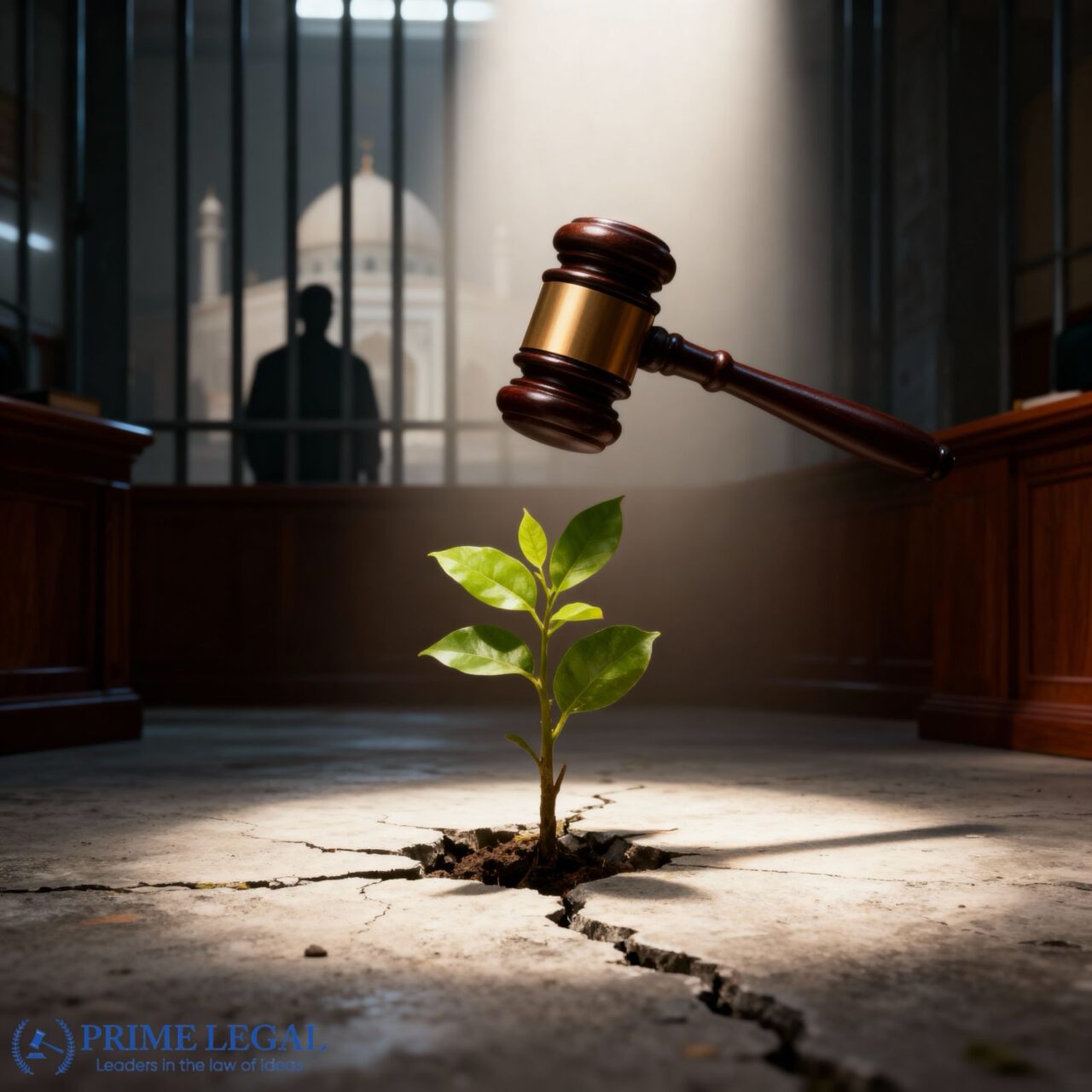Introduction
Bail is the interim release of the accused from legal custody. Bail can be anticipatory or regular bail. While granting bail, it is up to the discretion of the judge after hearing the arguments of the prosecution and the defence.
The Judge shall, however, take into consideration the seriousness of the offence, the message which shall be relayed to society and the precedent it shall set for future cases. The Supreme Court in the case of Surajpal Singh Jadon v. Prashant Sikarwar and Others (SLP (Crl) No. 13465/2025) has looked into the arbitrary nature of the bail granted and the need to rectify the judgment passed by the Madhya Pradesh High Court.
Background
The Gwalior Bench of Madhya Pradesh High Court, comprising Justice Anand Pathak and Justice Hridesh, suspended the sentence given to two murder convicts and granted them bail on the condition that each of them plant ten saplings under Section 389(1) of the CrPC. The Bench justified its decision on the basis that planting of saplings is for a social cause. The accused were charged under sections 302 and 341 of the IPC. The Supreme Court Bench, comprising Justice Aravind Kumar and N.V. Anjaria, disagreed with the decision taken by the MP High Court, as the decision seems not to be backed up with valid reasoning.
Key points
Valid Reasoning required: The Supreme Court said that the decision taken by the High Court on suspending the order of conviction under Section 389(1) of the CrPC. The Court said the exercise of the discretionary powers under this section were to be exercised objectively and on reasonable grounds. The High Court’s decision on granting bail on the condition of planting trees was wholly unrelated to criminal jurisprudence and is contradictory to the established norms governing suspension of the sentence. The High Court has failed to analyse the evidence and establish a valid reasoning for its decision on granting bail.
Social Message: The Supreme Court specified that, other than the decision of the High Court, not being validated in the eyes of law, the condition provided is very alien to criminal jurisprudence. The High Court has validated its opinion on the grounds that planting of trees is for environmental well-being. The High Court has mentioned that the condition of having to plant trees will create social awareness of the rising environmental concerns and motivate people to plant trees. The Supreme Court said that though environmental protection is a noble cause, the condition of planting trees is not a suitable condition in the bail provided. The Supreme Court specified that the condition should be relevant to the offence. The punishments and conditions should not be irrelevant to the offence committed.
Conclusion
The Supreme Court did not set aside the bail granted by the High Court. It just instructed the High Court to rectify its mistake and bring out a new order with proper reasoning and validation. The Supreme Court took this decision to strike a balance between correcting a flawed order and preventing undue inconvenience which would be caused to the accused on setting aside the bail already provided. The Court said that the bail given will be applicable until a new order is passed by the MP High Court.
“PRIME LEGAL is a full-service law firm that has won a National Award and has more than 20 years of experience in an array of sectors and practice areas. Prime legal falls into the category of best law firm, best lawyer, best family lawyer, best divorce lawyer, best divorce law firm, best criminal lawyer, best criminal law firm, best consumer lawyer, best civil lawyer.”
WRITTEN BY I Sharan


